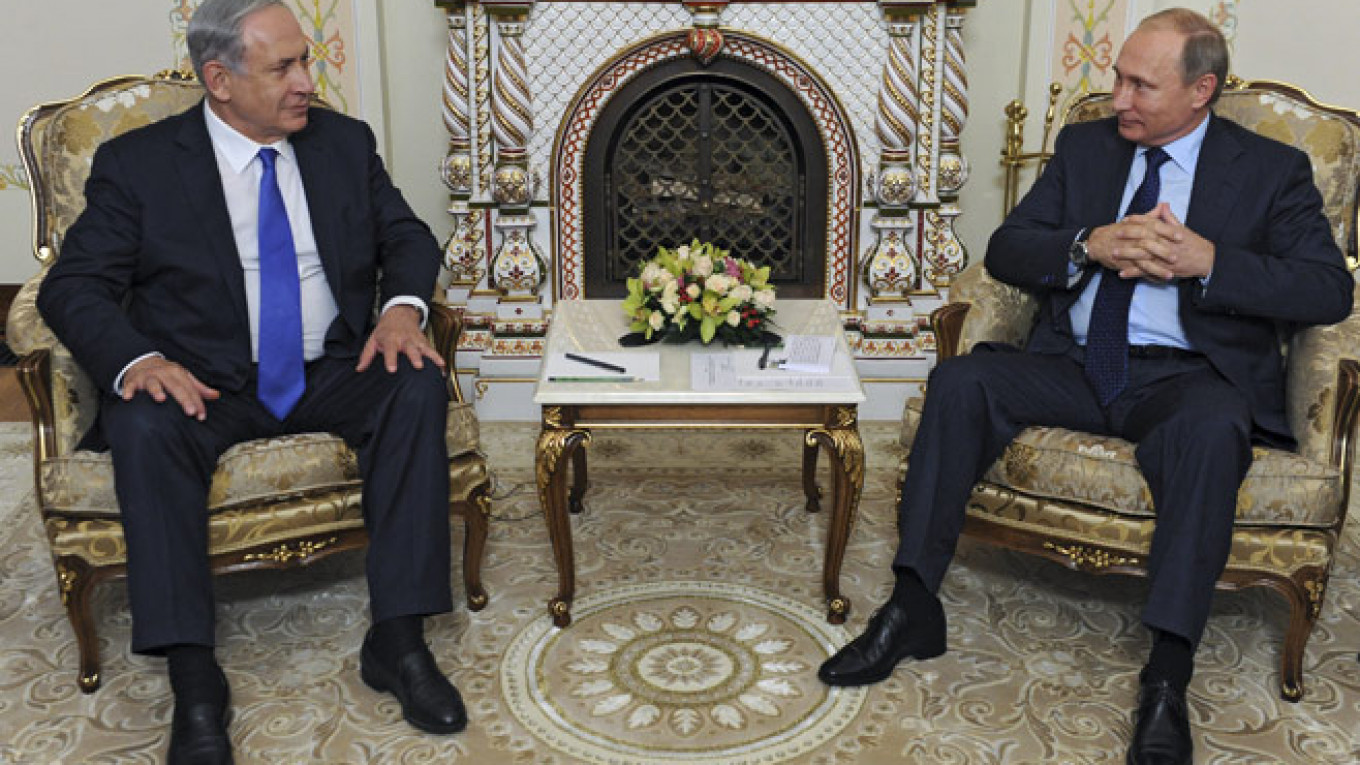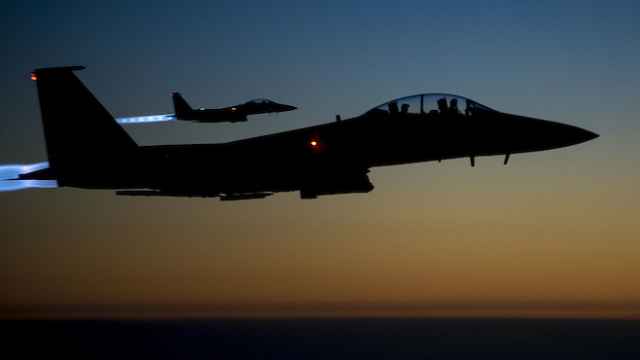Israeli Prime Minister Benjamin Netanyahu and Russian President Vladimir Putin agreed on Monday to set up the team as Moscow steps up military support for Syrian President Bashar Assad, who has been losing ground to an Islamist-led insurgency.
Israel is worried the Russian deployment, which U.S. officials and regional sources say includes advanced anti-aircraft units and warplanes, risks pitting Russian forces against its own over Syria.
Israeli jets have occasionally struck in neighboring Syria to foil suspected handovers of sophisticated Russian or Iranian-supplied arms to Assad's guerrilla allies in Lebanon.
The United States has also raised concerns that Russian military support for Assad could raise the risk of confrontation with the U.S.-led coalition that has been carrying out air strikes against Islamic State in Syria.
An Israeli military officer, who spoke on condition of anonymity, said the talks with Moscow would focus on aerial operations in Syria and "electromagnetic coordination."
The latter appeared to refer to the sides agreeing not to scramble each other's radio communications or radar-tracking systems, and devising ways of identifying each other's forces to avoid any unintended confrontation in the heat of battle.
Israel and Russia will also coordinate on sea operations off Syria's Mediterranean coast, where Moscow has a major naval base, the Israeli officer said.
In Moscow, Kremlin spokesman Dmitry Peskov said progress had been made in Russian-Israeli contacts over Syria, though he declined to confirm the coordinating team could meet soon.
"When it comes to communication channels and coordination of possible actions, yes, in fact, this topic was discussed and certain agreements and points during the meeting with Netanyahu were reached," Peskov told reporters in a conference call.A Message from The Moscow Times:
Dear readers,
We are facing unprecedented challenges. Russia's Prosecutor General's Office has designated The Moscow Times as an "undesirable" organization, criminalizing our work and putting our staff at risk of prosecution. This follows our earlier unjust labeling as a "foreign agent."
These actions are direct attempts to silence independent journalism in Russia. The authorities claim our work "discredits the decisions of the Russian leadership." We see things differently: we strive to provide accurate, unbiased reporting on Russia.
We, the journalists of The Moscow Times, refuse to be silenced. But to continue our work, we need your help.
Your support, no matter how small, makes a world of difference. If you can, please support us monthly starting from just $2. It's quick to set up, and every contribution makes a significant impact.
By supporting The Moscow Times, you're defending open, independent journalism in the face of repression. Thank you for standing with us.
Remind me later.





